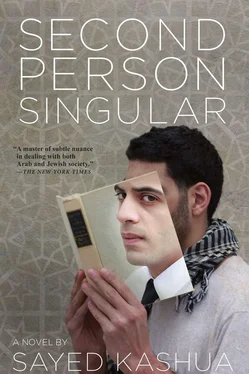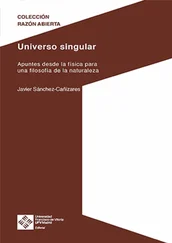But these convictions could not be brought before the municipality of Jerusalem and certainly not before the Israeli Department of Education, which insisted on seeing Jerusalem as the united and eternal capital of the Jewish people. Voicing these types of concerns before the Israeli authorities would put the school in danger of being closed down and the parents charged with heresy and political treason. Therefore, and due to the fact that the immigrants’ children were too few in number to fill the class quotas for Arabic speakers — the school mandate called for thirty students per class, half Arabs and half Jews — they were forced by the department of education and the municipality to accept several local kids.
It’s so easy to differentiate between the Jewish and the Arab cars, the lawyer thought as he walked from the parking lot to the entrance of the school, holding his daughter’s hand. The Jews’ cars were modest, affordable, generally products of Japan or Korea. The Arabs’ cars were expensive and German, with massive engines under the gleaming hoods and dashboards full of accessories; many of them were luxury SUVs. Not that the parents of the Jewish kids earned less — the lawyer could swear to the contrary — but as opposed to the Arab parents, the Jewish parents were not in competition, none of them felt they had to prove their success to their peers, and certainly not by upgrading their cars annually. Judging by the parents of the kids in his daughter’s class, the lawyer surmised that the Jews worked in a variety of fields. There were high-tech employees, several senior public servants from the foreign, finance, and justice ministries, a few professors, and two artists. A wide range of professions when compared with the Arab children, who had at least one parent, usually the husband, in law, accounting, or medicine. Most of the Arab mothers were teachers, generally senior staff — they were far more likely to rise up through the ranks of Jerusalem’s educational system than the local Arabs — but still, just teachers.
The lawyer, for his part, would have been happy to forgo the Mercedes and make do with a cheaper car. He had considered a top-of-the-line Mazda, but he knew he could not afford that. Even during the tough days after the purchase of the duplex, he knew that if he did not upgrade his car to a model that surpassed what the competition was driving, it would be seen as a retreat. He had to do everything in his power to ensure that he would remain, in the eyes of the public, the number one Arab criminal defense lawyer in the city, and a fancy black Mercedes was an integral part of that campaign. If one of his competitors bought a BMW with a V6 and three hundred horsepower, then he had to get the Benz with the V8 and a few hundred more horses under the hood. If the competition had optical sensors all around the car, he had to have DVD players built into the headrests. Not that the lawyer was having trouble paying back the loan he had taken to finance the car, but he certainly would have felt a little less pressure and would have had the luxury of being a bit more selective in the cases he took on if he had made do without the Mercedes. But he could not.
KING GEORGE
Five years ago the lawyer had moved his offices from Salah al-Din Street, the major thoroughfare in east Jerusalem, to King George Street, the main drag in the western half of the city. Aside from a few Jews, his clientele was based in east Jerusalem and the West Bank, and so on the face of things it made more sense for him to stay where he was, but the lawyer suspected that the east Jerusalemites, despite everything, had more esteem for a lawyer whose offices were located in a Jewish neighborhood. Forgoing his colleagues’ advice, he went with his gut feeling, and found, in a matter of months, that the move to King George Street, which entailed a tripling of the rent, was financially sound. In a year he had doubled his clientele and his income.
Not long after his move to the western part of the city, the lawyer realized that in addition to a permanent secretary and a rotating student intern, he also needed another lawyer to help with the caseload. One year after the move to King George Street, he offered the position to a former intern, Tarik, whom he liked and who reminded him of himself back in the day. He knew he could trust him and soon enough he managed to convince Tarik to abandon his plans of returning to the Galilee, where he had intended to open an office of his own.
“Why go back? Just so your dad can see the shingle on the door?” the lawyer had said to Tarik. “You want to spend your life working for the village car thieves, or deal with the real thing down here?” In order to show to Tarik what the real thing was, he sent the twenty-three-year-old lawyer, fresh from the bar exam, which he had aced, to file an appeal at the High Court of Justice in Jerusalem. Upon return, Tarik, feeling victorious, with an interim injunction in hand, agreed to the terms the lawyer had laid out, a monthly salary plus 10 percent of all income from the cases he handled.
The office secretary, Samah Mansour, had worked for the lawyer for eight years, ever since the lawyer had opened his private practice in the eastern part of the city. At first he had hired her part-time, but after a year he was able to offer her a full-time position. Samah, who was thirty years old, had graduated from law school in Amman and was looking for a law office where she could learn the language and the system, in hopes that she could one day gain entry to the Israel Bar Association. She had come to the interview accompanied by her fiancé. The lawyer knew that the woman seated before him was the daughter of one of the senior Fatah officials in Jerusalem, and he decided to give her a job even though she didn’t speak a word of Hebrew. He never would have admitted it but her father was the main reason he had hired her, especially since in those days he could hardly afford to pay her salary. But as a young criminal lawyer, he needed the seal of approval of a man like Mr. Mansour, Samah’s father.
Samah’s father ran for office in the first Palestinian parliamentary elections, was elected, and became, before long, a confidant of those in the upper echelons of the Palestinian government. Samah married her fiancé, a Kuwait-educated city planner, who had been working as a successful contractor ever since his return to Jerusalem. The couple had three children. By now she had a firm command of Hebrew, ran the office with a high hand, and seemed to have made her peace with her position, perhaps even deriving some satisfaction from it. Nonetheless, she took the bar exam every year and though she failed it close to a dozen times, she still insisted on trying her luck each year.
The lawyer pulled his car into the lot near his office and greeted the old guard with a hearty good morning. As usual, the man was busy brewing strong mint tea. The lawyer parked in one of the five spots he had rented — one for himself, one each for Samah and Tarik, whose cars were already in place, and two for important clients.
The old guard, black kippah on his head, waddled over toward the lawyer’s car, tea in hand. “Will you do me the honor of having a glass of tea with me?” he asked. The lawyer got out of his car and smiled. “Thank you very much, Mr. Yehezkel, but today I’m in a hurry,” he said, handing the guard the keys, as he did every Thursday, so that he could clean the vehicle. “You’re always in a hurry,” the guard said, adding in thick Kurdish-accented Arabic, “haste is from the devil.” The guard laughed a hearty laugh that ended in a cough.
“Good morning, Samah,” the lawyer said into his cell phone as he walked up King George Street. “They aren’t here yet, are they?” He knew that the clients scheduled to arrive this morning were not known for their punctuality and, furthermore, he had seen that the parking spots reserved for his clients were both still open. “Okay, so I’ll be downstairs in the café. Let me know when they come. Thanks.” He hung up the phone, tucked it into his jacket pocket, straightened his tie, and turned away from his office.
Читать дальше












